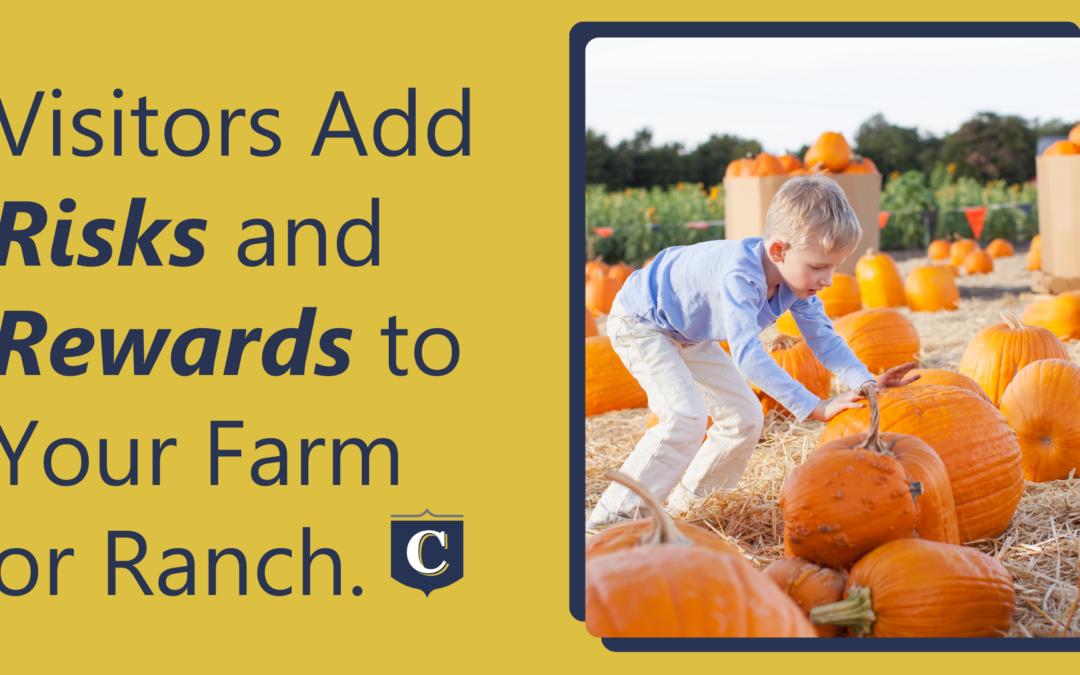When you welcome visitors to your farm, vineyard or ranch, you also welcome risk. Yet agritourism provides any small commercial farm with growing business opportunities.
When you open your farm or ranch to visitors, you risk injuries from equipment, falls, animal bites, physical activities, and more. But most of your guests will have little awareness or understanding of these risks. Even if you don’t charge for visits, you’re still liable if someone is injured or their personal property is damaged while you’re acting as their host.
In addition, a posted sign reading “Participate at your own risk” doesn’t absolve you of your responsibilities. And a signed liability waiver won’t prevent a person from filing a claim if they feel you are in the wrong. Don’t assume that a risk that is obvious to you is obvious to others. Develop a comprehensive safety and risk management plan to keep your farm and ranch in the clear.
Safety First: A Comprehensive Plan
To mitigate risks, develop a robust safety plan. This includes:
- Regular training: Educate employees on handling emergencies, visitor injuries, and weather-related dangers.
- Clear communication: Inform visitors about safety rules and expectations before their visit.
- Property inspections: Conduct regular inspections of your property, equipment, and animals.
- Hazard mitigation: Clearly label obstacles, hazards, and restricted areas.
- Veterinary care: Schedule regular veterinary visits to prevent animal-related injuries.
- Food safety: Adhere to strict food-handling practices and allergen labeling.
- Safe parking: Provide well-marked parking areas.
- Compliance: Ensure compliance with local regulations for agritourism activities.
Insurance: A Safety Net
Agritourism requires specialized insurance beyond standard farm coverage. Consider:
- Agritourism insurance: This covers liabilities associated with visitor activities.
- Commercial property insurance: Protect your property, structures, and equipment.
- Equipment breakdown insurance: Cover specialized equipment used for agritourism.
- Business income protection: Mitigate revenue losses due to unforeseen closures.
- Workers’ compensation: Ensure coverage for your employees, including any new hires for agritourism activities.
Tailor Your Coverage
The specific insurance needs for your agritourism venture depend on:
- Activities: Consider tours, product sales, animal interactions, and equipment usage.
- Visitors: Determine the expected number and age range of visitors.
- Property access: Decide how much of your property will be accessible to visitors.
- Safety measures: Evaluate your safety protocols, including rules, supervision, and equipment.
Consult with an Insurance Professional
To ensure adequate coverage, work closely with your Conrade insurance agent. They can:
- Identify potential risks specific to your agritourism activities.
- Recommend appropriate insurance policies and coverage levels.
- Help you understand the terms and conditions of your policies.
- Assist with claims and disputes if necessary.

